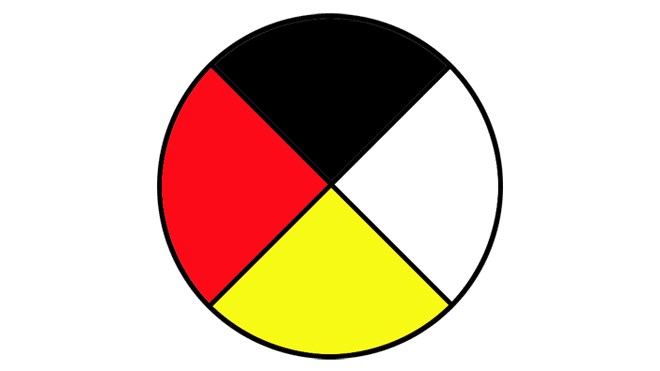The traditional Aboriginal medicine wheel is the basis for a new initiative of the North East Local Health Integration Network (LHIN).
On Wednesday, the LHIN released its Aboriginal Health Care Reconciliation Action Plan, becoming the first LHIN in the province to do so.
The goal is pretty straightforward: Improve the health First Nations people in northeastern Ontario, a demographic with higher rates of certain illnesses than the regional average.
The plan is based around four objectives, which in turn are based on the four quadrants of the medicine wheel, a cultural teaching tool many First Nationas use as a guide to living a good life.
The four objectives – opportunities (East), relationships (South), knowledge and understanding (West), and sustainability and evaluation (North) – make up an approach that represents wholeness, balance and interconnectedness, said the North East LHIN.
Louise Paquette, CEO of the North East LHIN, said reconciliation is a key part of the action plan.
“As a mother of three children, as a grandmother, I can't imagine having my children taken away from me,” Paquette said, referring to Canada's history of residential schools. “The effect of that continues to live on in the lives of Aboriginal people.”
Paquette said the action plan was developed by Aboriginal people and organizations for Aboriginal people.
Through the plan the North East LHIN hopes to close some of the health-care gaps that exist for First Nations people in the region and increase their health outcomes.
Gloria Daybutch, chair of the North East LHIN's Local Aboriginal Health Committee, which helped develop the action plan, said it takes a holistic approach to improving Aboriginal health.
“To me a reconciled First Nation is a reconciled Ontario,” she said.
Angela Recollet, executive director of Sudbury's Shkagamik-Kwe Health Centre, which hosted the unveiling of the Aboriginal Health Care Reconciliation Action Plan, said it's important not to repeat past mistakes and injustices when it comes to Aboriginal health.
She added everyone, not just the northeast's Aboriginal people, benefit from reconciliation.
